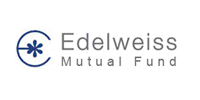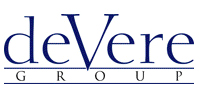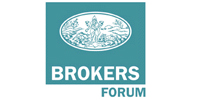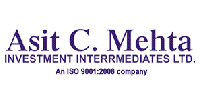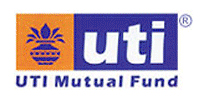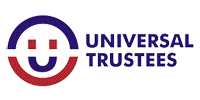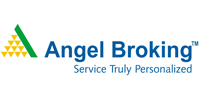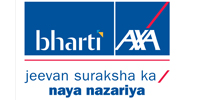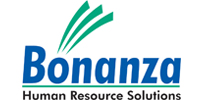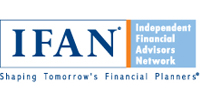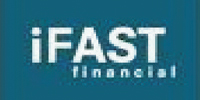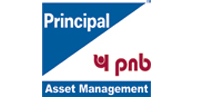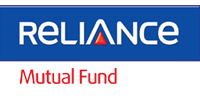The objective of the Chartered Wealth Manager® Program is to equip candidates with both basic and advanced skills required by a Wealth Manager in performing his tasks and duties as a Wealth Manager, Private Banker and Wealth Advisor.
The CWM Education Program focuses on sharpening three components:
The Program helps in
Acquiring core understandings in and across the disciplines that contribute to the domain of Wealth Management including Wealth Creation, Wealth Enhancement, Wealth Preservation and Wealth Transfer.
Relating these conceptual frameworks to dimensions of practical areas on the ground.
Providing candidates with opportunities to encounter and critically engage with instances of both challenging problems and attempted interventions by a Wealth Manager.
Engage with the complex financial markets, human attitudes and investment lifecycles.
Explore the ethical and personal dimensions of Wealth Advisory and understand the fiduciary responsibilities of a Wealth Manager.
The Curriculum of CWM® Consist of two levels
This unit would serve as stepping stone for a prospective investment professional in the basic understanding of the Wealth Management concept. The unit would cover the Wealth Management Process, Client Interaction Process, Time Value of Money Applications, Personal Financial Statements, and Cash Flow Management. The unit would further focus on dynamics of Wealth Management Industry especially in the context of global space. The last part of the unit would help the wealth manager in knowing the future of the Wealth Management Industry in India.
For a professional like a Wealth Manager or Investment Advisor an understanding of Financial Markets and systems is of prime importance. This unit would enable the Wealth Managementprofessional get a basic understanding of the Global and Indian Financial System. This unitwould also cover the fundamental aspects of financial markets operating across the globe. Theunit would enable the investment professional in acquainting with the history and originationof the International Financial Markets, Global Financial Institutions, regulatory institutions, Monetary and Economic System. The objective of the unit is to enable a wealth manager to predict the change in Client’s Investment Portfolio as per the changes in the Economic Environment.
The unit would focus on making an investment professional understand the concepts of return for an asset in general and portfolio in particular. The wealth manager would be able to understand and calculate the different return measures which are helpful for assessing the performance of various asset classes like Equity and Mutual Funds. Overall the endeavor of the unit would be to harness the skills of the investment professional with regard to understanding investor’s ability to take risk and willingness to take risk and identify optimal portfolio allocation considering the client’s risk taking abilities and financial goals.
This unit would enable the wealth manager understand the knowledge requirements relating to risk analysis in detail. It introduces the investment professional to risk analysis and insurance decisions in Protection Planning in a Wealth Management Plan. The wealth professional would use the facets of Wealth Planning for clients’ with regard to exposures to risks mortality, health, disability, property, liability, and long term care. A Wealth Manager would then be in a much better capacity to protect the client against these exposures.
The unit would focus on the plethora of investment ideas i.e. products which a wealth manager could to his clients in order to build the portfolio .The unit would encompass the concept, structure, returns measurement (income and/or capital gains), tradability, liquidity and legal issues of the major investment vehicles.
A wealth manager would be not be thorough in wealth management unless he understands Banking and its working. The focus of this unit is just that. The wealth manager would be able to gain an in depth understanding of the banking industry, its processes and its products currently prevailing in the Indian Market in this unit.
Legal rules and regulations governing every industry, wealth management business is no different especially considering the function of managing money the wealth management business does. This unit would highlight some of the most important statutes and regulations affecting businesses, families, and individuals which a wealth manager should be aware of in his role of managing and accumulating wealth.
The performance of every investment decision is evaluated as per the Post Tax Returns of the portfolio. So to say the least taxation issues play a very important role in devising a wealth plan for a client (it is one of the investment constraints). This unit enables the students to understand the Tax Structure in India, To compute tax under various heads of income, To gain a deep understanding of the techniques employed for tax planning.
This unit would explain the concept of life cycle management including retirement planning for an investment professional. The wealth manager would gather an in depth knowledge in understanding Life Cycle Issues at the time of devising the Wealth Management Plan for the client. The emphasis is on the process of wealth creation and the reviewing retirement planning strategies for clients.
In Wealth Management space the concept of Wealth transfer and preservation has gained as much importance as wealth accumulation. Few things are more important to an individual than planning his or her estate. This unit would help the wealth manager in understanding how Estate Planning can guide the client in determining who will receive his wealth at his death, how much of his wealth will go to the government in taxes, and whether his property will pass through a probate estate or through a trust. On completion of this unit the investment professional should be able to give advice on Estate Planning, Trust Planning while taking into account the taxation of the above strategies.
Equity as an asset class always features as the first choice in almost every portfolio due to various reasons. Considering the importance Equity possesses in investment management space this unit would focus at enabling the investment professional understand the various aspects of Equity. The unit would help the investment professional in analyzing the equity and its related products in a much comprehensive way. The unit would enhance the knowledge of the wealth manager regarding this premier asset class so that it would help him to extensively market and then convert the equity related needs of the clients in conjunction with risk and return parameters.
This course aims at explaining and discussing the importance of alternative assets in a client’s portfolio. As the market for Alternatives is still naïve in India we would try to focus on how inclusion of alternate assets has affected the risk and return composition of global clients. The unit would also focus on studying the various alternate channels of investment and their applicability in India.
The purpose of the unit is to make an investment professional gain an understanding of the economic forces that drive Real Estate asset and how the niche characteristics of real estate can provide an excellent fitment in a client’s portfolio. The unit would encompass the concepts, tools, and techniques for evaluating individual real estate assets. The Unit would also feature the different mechanisms through which a wealth manager can guide his client with respect to this asset class-Direct and Indirect.
This unit is focused on behavioral and psychological factors which influences the investment decision making of a client. This unit would further exemplify how the client behavior changes to different situations prevailing in the financial markets which would help a wealth manager in evaluating how to handle and manage the client’s responses. The unit would also include case studies covering the behavioral biases shown by the clients and how a wealth can approach and mitigate the same.
Relationship management is the back of wealth management business so the concept of Customer relationship management (CRM) is a widely implemented by wealth management business outfits for managing relationship and interactions with customers, clients and sales prospects. The unit discusses techniques to find, attract, and win new clients, nurture and retain those the wealth manager already has, entice former clients back into the fold, and reduce the costs of marketing and client service.
The course would intend to make the investment professional a One POINT contact for the client within the investment business by capturing the debt side of the client’s portfolio. The unit would cover the loan management fundamentals and the various types of loans available to different set of borrowers in general and within India’s context in particular. The unit would also enable a wealth manager understand in brief the credit process to be followed before disbursing a loan in India as per the regulations. The unit would also feature some part on how debt consolidation can fit in the overall portfolio management of the client.
The unit would serve as a foundation for understanding of Portfolio Management process of an individual. This unit would cover the fundamental concepts of risk and return and their application in the context of overall portfolio of a client which would help the wealth manager in making efficient asset allocation with respect to client’s risk and return objectives. This endeavor of the unit would be to guide the investment professional in drafting the Investment Policy Statement which is one of the most important tool of investment advisory arena. The latter part of the book would feature the various portfolio managing strategies both for Equity as well as Debt.
The unit would help the financial market and investment management professional in assessing the applicability of various taxation aspects for an individual investor before deciding on the portfolio allocation of the client in the international space. The unit would cover the tax structures in few of the prominent investment zones across the globe like US, UK, Singapore and Mauritius. The latter part of the unit would make an investment professional understand in requisite detail the implications of Tax treaties applicable for an Indian client with respect to these investment centres. Lastly the unit would throw some light on the taxation for NRI clients and on tax planning through trust for clients.
This unit covers the different aspects of wealth management business across the globe. It focuses on analyzing and studying the various key profitability drivers like Clients, Products, Distribution and Organization of any wealth management business and how each of the drivers can impact the efficiency of the business. The unit would also feature the wealth management landscape in India and with specific focus on different business models.
This unit builds upon the foundations in Wealth Management concepts covered under CWM®. The unit would provide an excellent platform to the wealth manager for constructing a comprehensive Wealth Plan for his client with specific focus on each of the 6 steps of the wealth management process covered in Level 1. This unit would make the investment professional understand the application of the each of the earlier units through different enriching live case lets.
The unit would also provide handful tools drafted by AAFM India (Performa for Portfolio Review) which can be used by an investment professional right from the start till the end of the wealth management process.
The candidate has to go through the above 20 Units through an Authorized Education Provider either through Class Room Mode or Distance Learning Mode and clear the requisite exams as per the pathway chosen to complete the academic requirements of the Board of Standards. The completion of the academic criterion ensures that the candidate has the requisite knowledge and skills to work as a Wealth Manager.

 Request More Information
Request More Information
